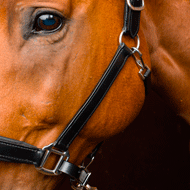Concerns over non-veterinary equine services

There have been growing concerns over the number of individuals offering equine healthcare services.
A government survey has been launched to find out more about equine healthcare services and whether the care being given by non-vets is of a high enough standard.
Findings from the survey will form the basis of discussions about how to manage the services provided by non-vets, in order to protect horse health and welfare.
In recent years there has been growing unease about the number of individuals offering equine healthcare services.
David Mountford, chief executive of the BEVA, who are co-ordinating the survey, said: "There is concern that in 2014, many horse owners simply aren't aware of the level of skills, knowledge and protection that they are paying for and that this could open the door for unscrupulous individuals (or even well-meaning individuals without appropriate training) to set up in business and put horse health and welfare at risk."
Since current regulations relating to veterinary and farriery activities were drawn up, the extent of these services has expanded, without any system in place to regulate the standard of care. The Government will assess whether current controls are fit for purpose.
Horse owners are being asked to provide information on dental care, hoof care and musculoskeletal therapies.
The survey forms part of Defra's Review of Minor Procedures - a project to investigate the best ways to govern non-veterinary activities, ensuring welfare remains the top priority without overburdening practitioners with red tape.
The deadline for completing the survey is June 15: https://www.surveymonkey.com/s/RMPRHorseOwner



 The RCVS has announced a new version of its 1CPD mobile app, with enhanced features for veterinary surgeons and veterinary nurses to record their continuing professional development.
The RCVS has announced a new version of its 1CPD mobile app, with enhanced features for veterinary surgeons and veterinary nurses to record their continuing professional development.